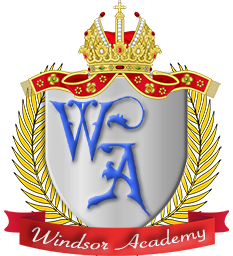Spelling: < - ward>
Spelling: < – ward>
• The children turn to the backs of their books and find
Spelling Test
the column labelled Spelling Test 34.
•Call out the spelling words learnt last week.
Revision
•Write these words on the board and revise the different
spellings: fis sure, literature, poss ible, chute, chalet,
cliche.
–• Qld
SW SE __
•Remind the children that <sure> usually says /zher/,
/sher/ or /shor/, <ture> usually says /cher/, and <ch> and
<che> say /sh/ in words that have a French origin.
•Ask them to suggest other words with these endings,
identify how they are said and discuss their meanings .
Spelling Point
•Remind the class that knowing a prefix, suffix or word root can often help in working out the meaning of an unfamiliar word.
•For example, the suffix <-ward> comes from the Old English word weard , meaning turn.
•It is used to make adjectives and adverbs meaning being or moving in the direction of (the root word) (so we can take a backward step, and a bird can fly skywards).
•Most of the words in the spelling list can be used either as adjectives or adverbs, although the adverbs are more usually written <-wards>.
•However, some are only adjectives ( wayward , untoward , awkward and straightforward), others are only adverbs (afterwards and henceforward) and towards is a preposition.
•Look at the final two spelling words and make sure the children know the points of a compass.
Spelling List
-;;;;;;;;::;- . ••” .•
…
out the spelling words quickly every day with the children, using the ‘say it as it sounds’ strategy where appropriate, or you could break down the words into root (word) and suffix.
Activity Page 1
•The children split each spelling word into syllables (on/ ward, for / ward, out / ward, to/ wards, back! ward , sky / ward , home/ ward, down/ ward, way! ward , unito/ ward , awk!ward , af lterlwards, lee! ward , straight / for / ward , hence/ for / ward , wind! ward , south / east / ward , north/ west / ward).
•They then write a sentence for each of the listed spelling words.
•Encourage the children to use a dictionary if they are unsure of any words.
Activity Page 2
•The children write the directions on the compass (clockwise from top: north, northeast, east, southeast,
•Go through the list, identify the syllables in each word and discuss the meaning of any unfamiliar words.
•Ask the class to find and highlight each <-ward(s)> spelling.
•Explain that when <ar> follows
<w>, it says /or/ (as in towards and untoward), although the vowel sound is swallowed and becomes a schwa in most of the spelling words.
•Point out the different spellings of /cl in backward, skyward and awkward , the <y> and <ay> in the middle of skyward and wayward , the <aw> spelling in awkward , the
<aigh> saying /ail in straightforward
and the soft <c> in henceforward.
•It is a good idea to blend and sound
onward forward outward towards backward skyward homeward downward wayward untoward awkward afterwards leeward straightforward henceforward windward southeastward northwestward
south, southwest, west, northwest).
•Then they parse the sentence and complete the wall.
•Possessive nouns always act as adjectives, so ship’s
should be underlined in blue.
The ship’s captain was steadily sailing a southwestward course.
Top: captain – was sailing – course
Bottom: The ship’s – steadily – a southwestward
Verb: transitive Dictation
1. Dad always looked awkward when he tried to dance.
2. Afterwards, the taxi left and drove towards the airport.
3. She said, “I’m looking forward to going home now:•
•Dictate the following sentences:
•Remind them to use speech marks with the correct punctuation in sentence 3.
